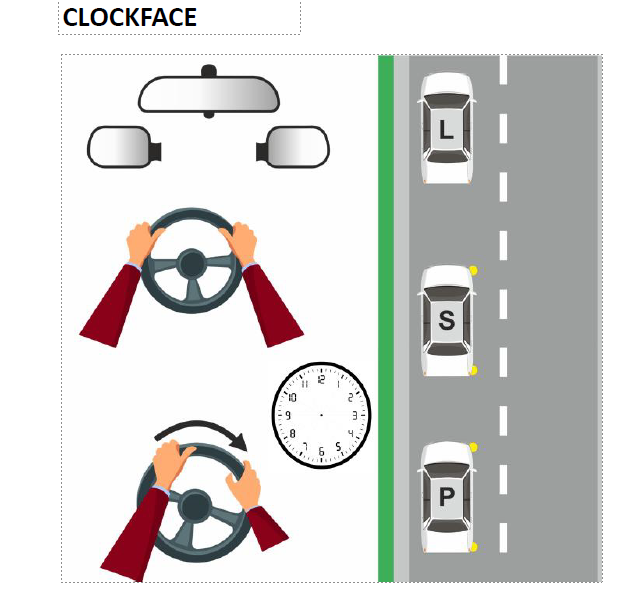Driving Instructor Reference Points / Focal Points
ADI Part 3 Reference Points or Focal Points
Driving Instructor Reference Points / Focal Points
When it comes to training on not just for your ADI Part 3 or ADI Standards check test, but for your whole career as a driving instructor it is really important that you are able to use Driving Instructor Reference Points / Focal Points
What Are Driving Lesson Reference Points or Focal points?
When it comes to improving your driving skills, understanding driving lesson reference points can make a world of difference.
Reference points are certain spots on the road that help drivers make quick and accurate decisions while behind the wheel. Knowing what these reference points are and how to use them is essential for anyone wanting to become a better driver. From your perspective for the ADI Part 3 or Standards Check Test, it will help you to become a better teacher
In this section, we'll be exploring what driving lesson reference points are and how they can help drivers stay safe and improve their driving skills.
Get yours Here
Focal or Reference Point For Pulling up
The car's position on the road for pulling up
One of the key driving lesson reference points is the car's position on the road. Before moving off, it is important to identify the focal point or driving reference point.
At this point, the driver should be sitting at the side of the road, with the wheels straight ahead. They can then look at the kerb on the left and you can ask the pupil to follow the kerb towards the car
Wherever the kerb meets the front of the car (most often in the middle of the bonnet or centre of the dashboard)
Focal Point or Reference Point for Steering
If your pupil is struggling with steering to the correct position when first starting lessons, rather than grabbing the wheel, and saying “steer right – Not that much!” or “Steer left, more, more, more!”
why not try giving them reference points?
Think of the steering wheel as a clockface
Steer to 2
Steer to 10
Steer to 12
Now the pupil has a better idea of just how much to turn – This linked with, when the pupil is in the correct position – Again look at the kerb on the left and where it meets the front of the car or the dashboard, will again give them a reference point, they can follow on their own.
ANOTHER GOOD REFERENCE POINT FOR CORRECT LANE POSITION
Why not say to the pupil, when your left leg seems to be in the centre of your lane, that will mean that you are in a good driving position.

BUY YOUR ADI Part 3 Reference points Book
Enhance your teaching skills by using the reference points in your car
GET YOUR TODAY - SEE OUR SHOP
Amazon - See our store
Reference Points
This is an Image & Text block. Click on this text to start editing and enter your own text with some basic formatting. Just click anywhere outside the text box when you're done to continue working on the rest of your page.
To change the layout and appearance of a block, such as the size of its images and columns, click on the Change Layout button on the block toolbar, to the right of each block.

Driving Instructor Reference Points
Why Reference Points Matter As a driving instructor, your ultimate goal is to empower your students to drive safely and confidently on their own.
One of the most effective ways to achieve this is by providing clear and precise reference points. These reference points are crucial for helping learners understand exactly what to do and how to do it.
Whether it's positioning for a turn, aligning for parallel parking, or gauging distances, reference points serve as visual cues that demystify complex manoeuvres.
- A5 spiral bound 36 pages
For More Reference Point Ideas
If you want help understanding the ADI Part 3 and ADI Standards Check test, why not get our guide.
It has a fantastic easy to understand overview of the ADI Part 3 test and the ADI standards check test.
It is great for qualified driving instructors too, to give them ideas or a fresh perspective on things like
Reference points and Focal Points
Understanding the marking sheet
Fault Analysis
Learning and Teaching Styles
Get your Copy HERE




